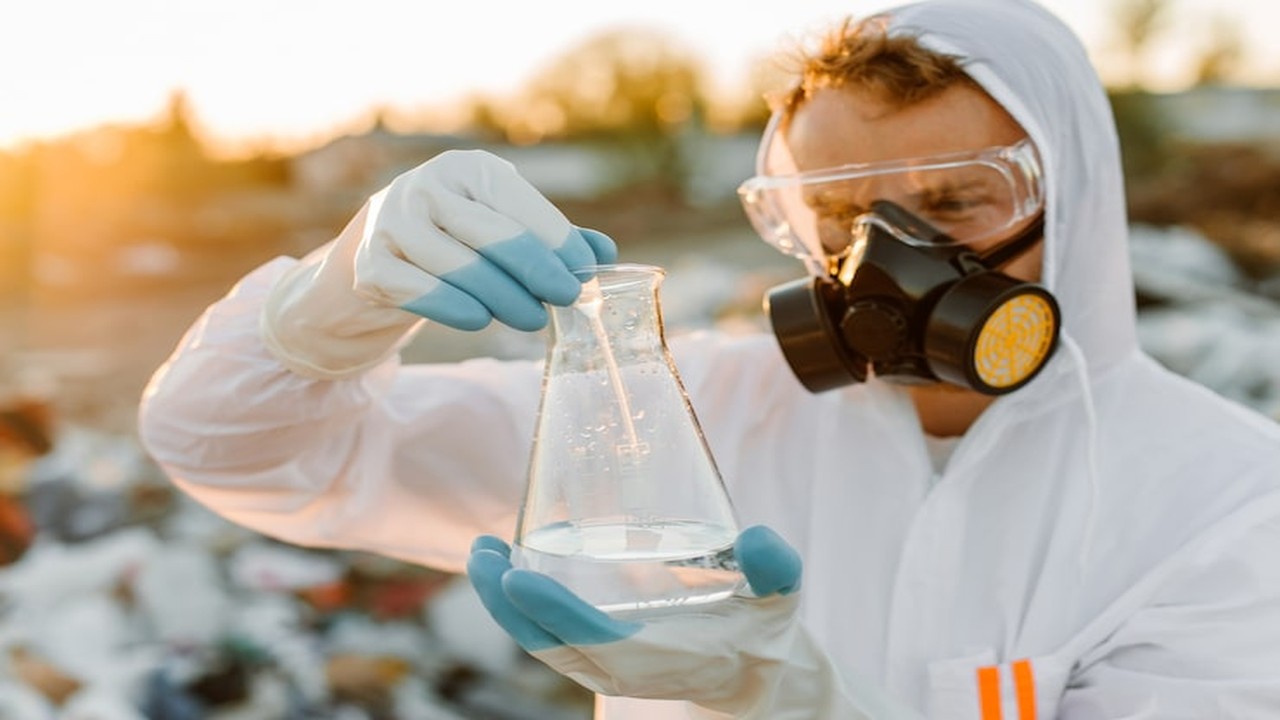 In a groundbreaking move towards sustainability, SCS Standards and Assurance Systems has unveiled the SCS-004 Certification Standard for Responsible Advanced/Chemical/Molecular Recycling for public review. This standard, developed in collaboration with leading chemical companies, aims to set a credible benchmark for environmentally and socially responsible recycled material production. With a focus on transparency and accountability, the standard addresses various recycling technologies and polymer types, marking a significant step towards a more sustainable future in recycling practices.
In a groundbreaking move towards sustainability, SCS Standards and Assurance Systems has unveiled the SCS-004 Certification Standard for Responsible Advanced/Chemical/Molecular Recycling for public review. This standard, developed in collaboration with leading chemical companies, aims to set a credible benchmark for environmentally and socially responsible recycled material production. With a focus on transparency and accountability, the standard addresses various recycling technologies and polymer types, marking a significant step towards a more sustainable future in recycling practices.
Advancing Sustainability in Recycling Practices
The release of the SCS-004 Certification Standard by SCS Standards and Assurance Systems marks a significant milestone in advancing sustainability within the recycling industry. By collaborating with key chemical companies like Alterra, Braven Environmental, and Brightmark, SCS has developed a framework that not only promotes responsible production of recycled materials but also emphasizes environmental and social considerations. This standard sets a credible benchmark for recyclers, ensuring that operations are conducted in a manner that aligns with global sustainability goals. Companies seeking to enhance their ESG performance can leverage this certification to showcase their commitment to sustainable practices, thereby enhancing their reputation and stakeholder trust.
Moreover, the focus on transparency and accountability within the SCS-004 standard is crucial for driving meaningful change in recycling practices. By incorporating guidelines from the US Plastics Pact and building upon the work of the Ocean Plastic Leadership Network, SCS has created a comprehensive framework that addresses various recycling technologies and polymer types. This holistic approach not only fosters innovation in advanced recycling methods like pyrolysis and depolymerization but also ensures that the entire value chain, from recyclers to end-users, is aligned with sustainable principles. Companies like Eastman Chemical Company and GreenMantra Technologies, involved in the development of this standard, are at the forefront of promoting circular economy practices that reduce waste and minimize environmental impact.
Enhancing Supply Chain Traceability and Ethical Sourcing
Incorporating the SCS-004 Certification Standard into supply chain operations can significantly enhance traceability and promote ethical sourcing practices. By certifying the production of recycled materials through responsible advanced/chemical/molecular recycling, companies can provide buyers with assurance regarding the origin and sustainability of their products. This level of transparency not only mitigates reputational risks associated with opaque supply chains but also aligns with consumer preferences for ethically sourced goods. Companies like LyondellBasell, which have contributed to the development of this standard, are demonstrating their commitment to responsible sourcing and environmental stewardship, setting a positive example for the industry.
Furthermore, the public review process for the SCS-004 standard presents an opportunity for stakeholders to actively engage in shaping the future of recycling practices. Companies, certifiers, and buyers can contribute feedback and insights that can further refine the standard, ensuring that it remains relevant and effective in addressing evolving sustainability challenges. This collaborative approach, facilitated by SCS Global Services, fosters a culture of continuous improvement and shared responsibility within the industry. By participating in the public review and providing constructive input, stakeholders can collectively drive positive change towards more sustainable and transparent global supply chains.
Driving Innovation and Industry Leadership
The introduction of the SCS-004 Certification Standard not only sets a new benchmark for sustainability in recycling but also catalyzes innovation and industry leadership. Companies involved in the development of this standard, such as Braven Environmental and GreenMantra Technologies, are at the forefront of leveraging advanced recycling technologies to transform waste streams into valuable resources. By adhering to the requirements of the SCS-004 standard, these companies are not only meeting regulatory expectations but also positioning themselves as pioneers in sustainable practices. This proactive stance towards environmental responsibility not only differentiates them in the market but also inspires others to follow suit, driving a collective shift towards a more circular and resource-efficient economy.
The webinar scheduled by SCS Standards and Assurance Systems to introduce the SCS-004 standard signifies a commitment to knowledge sharing and industry-wide collaboration. This platform provides an opportunity for stakeholders to gain insights into the key principles and requirements of the standard, fostering a deeper understanding of sustainable recycling practices. Companies like SCS Global Services, as the official standards development body for Scientific Certification Systems, Inc., play a critical role in disseminating best practices and fostering a culture of continuous learning within the industry. By actively participating in such knowledge-sharing initiatives, companies can stay abreast of emerging trends and technologies, positioning themselves as leaders in driving sustainable innovation across global supply chains.
Conclusion
The unveiling of the SCS-004 Certification Standard by SCS Standards and Assurance Systems heralds a new era of sustainability in recycling, driving industry-wide innovation and accountability. With a focus on transparency and ethical practices, this standard not only sets a credible benchmark for responsible recycled material production but also empowers companies like Alterra, Braven Environmental, and GreenMantra Technologies to lead the charge towards a circular economy. As stakeholders actively engage in shaping the future of recycling through the public review process, the call for action is clear: embrace sustainable practices, enhance supply chain traceability, and catalyze industry leadership to create a more transparent and resource-efficient global economy.